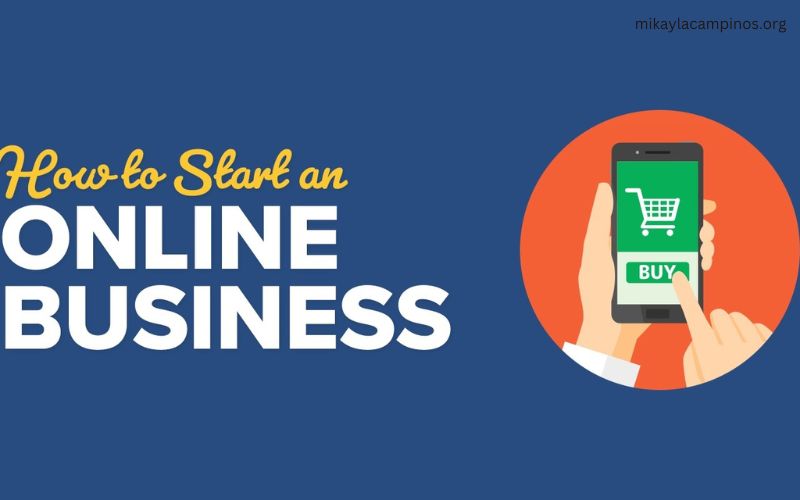The allure of entrepreneurship is strong, and the prospect of building a successful online business is tantalizing. But, for many, the thought of turning an idea into a reality can be daunting. The process of starting an online business can be overwhelming, with so many moving parts to consider, from market research to website design, marketing to monetization. However, with the right guidance, anyone can turn their passion into a profitable venture. In this comprehensive guide, we’ll take you by the hand and walk you through every step of the process, from conceptualizing your idea to launching your online business. From defining your niche and creating a business plan, to building a website, developing a marketing strategy, and generating revenue, we’ll cover it all.
Turning Your Idea into a Reality
The thrill of turning your idea into a reality is an exhilarating experience, and it’s the first step in bringing your online business to life. This is where the magic happens, and your concept starts to take shape. It’s a crucial phase, as it lays the foundation for your entire venture. The idea is often the spark that ignites the passion and drive to create something new, and it’s essential to nurture it carefully.
In this stage, you’ll start to define your concept, identify your target audience, and determine the unique value proposition that sets your business apart. You’ll begin to ask yourself questions like: What problem do I want to solve? Who is my ideal customer? What makes my product or service unique? The answers to these questions will shape the direction of your business and provide the framework for your future success.
It’s a time for brainstorming, research, and exploration. You’ll need to gather your thoughts, validate your idea, and refine your vision. This stage is all about clarity and definition. It’s the start of your entrepreneurial journey, and it’s where the excitement and uncertainty of embarking on a new venture begin to take shape. So, take your time, stay focused, and get ready to bring your idea to life!
Defining Your Business Model and Goals
The birth of a new online business is a thrilling moment, filled with excitement and anticipation. But before you can start building your website, creating products, or marketing your services, it’s essential to define your business model and set clear goals. This is the foundation upon which your entire venture will be built, and it’s crucial to get it right.
Imagine you’re building a house. You wouldn’t start hammering nails and laying bricks without first designing the blueprints, choosing the materials, and deciding on the layout. Similarly, your business model is the blueprint for your online business, outlining how you will create and deliver value to your customers, and how you will generate revenue.
In this step, you’ll need to think critically about your business and answer some fundamental questions. What products or services will you offer? Who is your target audience? What sets you apart from the competition? How will you price your offerings, and what will be your revenue streams? What are your short-term and long-term goals, and how will you measure success?
By taking the time to define your business model and set clear goals, you’ll be able to create a solid foundation for your online business, ensuring that it’s well-structured, efficient, and poised for success. You’ll be able to make informed decisions, avoid costly mistakes, and stay focused on what’s important. So, take a deep breath, grab your pen and paper, and let’s get started!
Conducting Market Research and Analysis
Conducting market research and analysis is a crucial step in the process of turning your idea into a reality. It’s during this stage that you’ll gain a deeper understanding of your target audience, their needs, and what sets your product or service apart from the competition. This research will serve as the foundation upon which your online business is built, allowing you to make informed decisions that will drive its success.
Imagine walking into a crowded room without knowing what everyone is talking about, what they’re looking for, or what’s currently trending. It’s a daunting task, to say the least. Without conducting thorough market research, you’ll be operating in the dark, making guesses about what your customers want and need, and ultimately, risking failure.
On the other hand, by conducting thorough market research, you’ll gain valuable insights into your target audience’s behavior, preferences, and pain points. You’ll be able to identify gaps in the market, opportunities to disrupt the status quo, and areas where you can differentiate your product or service. This knowledge will enable you to create a product or service that resonates with your target audience, increasing the likelihood of attracting and retaining customers.
In this section, we’ll delve into the world of market research, providing you with a step-by-step guide on how to conduct thorough research, analyze your findings, and make data-driven decisions to drive your online business forward. Whether you’re just starting out or looking to revamp your existing strategy, this section will equip you with the tools and knowledge you need to succeed in the competitive world of online business.
Creating a Unique Value Proposition
The moment of truth has arrived – it’s time to define your unique value proposition (UVP). This is the most crucial part of your online business, as it sets the tone for your brand’s identity and resonates with your target audience. Your UVP is the answer to the question: “Why should customers choose my business over others?”
Think of your UVP as a promise to your customers. It’s the unique benefit that you offer that sets you apart from competitors. It’s what makes your business special, and what keeps customers coming back for more. When crafting your UVP, you should consider the following questions: What are the problems that your customers face? What unique solutions do you offer to solve those problems? What sets your business apart from others in the market?
A clear and compelling UVP is essential because it helps to establish a strong brand identity, drives customer loyalty, and even influences search engine rankings. It’s the foundation upon which your marketing strategy will be built, and it’s what will ultimately attract and retain customers.
Take the time to get it right, and you’ll be well on your way to creating a successful online business. Don’t be afraid to brainstorm and experiment until you find a UVP that truly resonates with your target audience. The payoff will be worth it – a loyal customer base, increased brand recognition, and a competitive edge in the market.
Developing a Business Plan and Strategy
The moment of truth has finally arrived – it’s time to put your business idea into action. But before you start building your online empire, it’s essential to take a step back and create a solid business plan and strategy. This is often the most crucial, yet overlooked, step in the startup process. A well-crafted business plan will serve as a roadmap, guiding you through the ups and downs of entrepreneurship and ensuring that your online venture stays on track.
Think of your business plan as a comprehensive guide that outlines your company’s mission, goals, and objectives. It’s a document that will help you stay focused, make informed decisions, and measure your progress. A good business plan should cover key aspects such as market analysis, target audience, competitors, financial projections, marketing and sales strategies, and operational plans. By taking the time to develop a clear and concise business plan, you’ll be able to:
* Identify your unique selling proposition and differentiate yourself from competitors
* Set realistic goals and objectives, and create a plan to achieve them
* Develop a budget and financial plan, ensuring that your business is sustainable and profitable
* Create a marketing and sales strategy that resonates with your target audience
* Establish a plan for operations, including logistics, supply chain management, and customer service
In this section, we’ll walk you through the process of developing a business plan and strategy that will set your online business up for success. We’ll provide you with a step-by-step guide, templates, and tips to help you create a comprehensive plan that will keep your business on track and help you achieve your goals.
Building Your Online Presence
Building your online presence is a crucial step in establishing your online business, as it serves as the foundation upon which your brand identity and reputation are built. This is where your website, social media profiles, and other online platforms come into play. A professional website is essential, as it provides a central hub for customers to learn about your business, products, and services. A well-designed website not only showcases your brand’s personality but also serves as a trust-building tool, allowing potential customers to get a sense of who you are and what you’re about.
In addition to your website, your social media presence is also vital. This is where you can engage with your audience, share updates, and build relationships with your customers. A consistent tone and visual aesthetic across all platforms is key to establishing a strong brand identity. You can also use social media to share customer testimonials, behind-the-scenes content, and sneak peeks to keep your audience engaged and interested in your brand.
Having a strong online presence also extends to other platforms, such as email marketing, online directories, and review sites. By claiming and optimizing your listings on these platforms, you can increase your visibility and credibility, making it easier for customers to find and trust your business.
In this stage, you’ll also want to focus on building your brand’s voice and personality. This is where you can showcase your unique value proposition, share your story, and establish your brand’s tone and language. By doing so, you can create a sense of community and connection with your audience, making them more likely to become loyal customers and advocates for your business.
Registering Your Business and Domain Name
As you’ve carefully crafted your business plan and refined your idea, it’s now time to take your online venture to the next level by giving it a professional identity. Registering your business and securing a domain name are crucial steps in establishing your brand’s credibility and online presence. Think of it as creating a digital storefront, where customers can find and interact with your business.
Registering your business typically involves registering your business name with your state or country’s government, which is often referred to as a “business entity” or “fictitious business name”. This step is important because it protects your business from being impersonated by others and ensures that you have the legal authority to operate your business. The process of registering your business can vary depending on your jurisdiction, so be sure to research the specific requirements for your region.
Once you’ve registered your business, you’ll want to secure a domain name that reflects your business’s name and brand identity. A domain name is the web address that customers will use to access your website, such as [www.example.com](http://www.example.com). Registering your domain name is a crucial step in establishing your online presence, as it allows you to create a professional website and establish a sense of ownership and authority. Think of your domain name as the digital equivalent of your business’s storefront sign – it’s the first thing customers will see when they think of your brand.
By registering your business and securing a domain name, you’re taking a significant step towards establishing your online presence and building a strong foundation for your business.
Choosing the Right Web Hosting and Platform
As you embark on the journey of bringing your online business to life, selecting the right web hosting and platform is a crucial step that can make a significant impact on your success. Think of your web hosting and platform as the foundation of your digital home, providing the necessary infrastructure to support your website’s growth and functionality.
When choosing your web hosting, you’ll want to consider factors such as reliability, scalability, and customer support. A reliable web hosting provider ensures that your website is always available to your customers, while scalability allows your website to grow and adapt to changing demands. Good customer support is also essential, as it will help you troubleshoot any issues that may arise.
In addition to web hosting, you’ll also need to select a platform that aligns with your business goals and technical expertise. Popular options include WordPress, Shopify, and Magento, each with its own strengths and weaknesses. For example, WordPress is a versatile and customizable platform that’s ideal for bloggers and content-driven websites, while Shopify is a user-friendly platform designed specifically for e-commerce businesses.
As you navigate the world of web hosting and platforms, it’s essential to remember that your choice will have a direct impact on your website’s performance, user experience, and ultimately, your bottom line. Take your time, do your research, and don’t be afraid to ask questions to ensure that you make an informed decision that will set your online business up for success.
Designing and Building Your Website
The moment of truth has finally arrived – it’s time to bring your online business to life by designing and building your website. This is a crucial step in the journey, as your website will serve as the face of your brand and the primary hub for customers to interact with you. A well-designed website can make a significant difference in attracting and retaining customers, while a poorly designed one can lead to high bounce rates and a lack of engagement.
When designing your website, it’s essential to consider the overall user experience. This includes the layout, navigation, and visual appeal of your website. A clean and intuitive design will make it easy for customers to find what they’re looking for and take the desired actions. You should also prioritize mobile-friendliness, as more and more people are accessing the internet through their smartphones.
There are several options to consider when it comes to building your website. You can opt for a website builder like Wix, Squarespace, or WordPress, which offer a range of templates and drag-and-drop tools to make the process easier. Alternatively, you can hire a web developer to create a custom website from scratch. Whichever route you choose, it’s essential to ensure that your website is secure, fast, and optimized for search engines.
A website that is easy to navigate and visually appealing will not only attract customers but also increase the chances of converting them into paying customers. With a solid website design and build, you’ll be well on your way to establishing a strong online presence and setting your business up for success.
Creating Content and Developing Your Brand
This is the part of the journey where your online business starts to take shape. You’ve got your idea, your plan, and your target audience. Now, it’s time to bring it all together and create a brand that resonates with your customers. This is where the magic happens, and your business starts to come to life.
Creating content is a crucial step in building your brand. It’s the way you communicate with your audience, share your expertise, and showcase your products or services. It’s the meat of your online presence, and it’s what will set you apart from the competition. Whether you’re writing blog posts, creating videos, or producing podcasts, your content should be high-quality, engaging, and authentic.
But creating content isn’t just about churning out a bunch of posts and hoping for the best. It’s about developing a content strategy that aligns with your business goals and resonates with your audience. It’s about understanding what your customers want and need, and providing them with valuable information that solves their problems or answers their questions.
Developing your brand is also a critical part of this process. Your brand is the sum of all the experiences your customers have with your business, and it’s what sets you apart from the competition. It’s the way you look, the way you sound, and the way you make your customers feel. Your brand is your identity, and it’s what will attract and retain customers over the long term.
So, how do you create content and develop your brand? It’s a process that requires intention, creativity, and a willingness to learn and adapt. It’s about understanding your audience, creating content that resonates with them, and developing a brand that reflects your values and mission. In the next section, we’ll dive deeper into the specifics of creating a content strategy and developing your brand.
Setting Up Payment and Shipping Options
As your online business begins to take shape, it’s essential to focus on the logistical aspects that will facilitate a seamless customer experience. Two critical components of this are payment and shipping options. You’ll need to decide how you want to process payments and how you’ll get your products to your customers’ doors.
When it comes to payment options, you have a variety of choices. You can opt for a third-party payment processor like PayPal, Stripe, or Square, which will handle the transaction securely. Alternatively, you can integrate a payment gateway into your website, allowing customers to pay directly on your site. Whichever option you choose, ensure that it’s secure, reliable, and compliant with industry regulations.
Shipping options are just as crucial. You’ll need to decide how you’ll package and dispatch your products, as well as how you’ll communicate with customers about their orders. You may want to consider partnering with a fulfillment service, which can handle the logistics of storing, packing, and shipping your products. Alternatively, you can handle shipping in-house, which can give you more control over the process.
Regardless of which option you choose, make sure to clearly outline your shipping policies and estimated delivery times on your website. This will help set expectations with your customers and reduce the likelihood of misunderstandings or disputes. By taking the time to set up your payment and shipping options thoughtfully, you’ll be able to provide a smooth and satisfying customer experience, setting your online business up for success.
Developing a Marketing and Sales Strategy
As the excitement of bringing your online business to life begins to simmer, it’s essential to focus on the crucial next step: developing a marketing and sales strategy. This is where the rubber meets the road, and your business’s success or failure will be determined. You’ve invested time and effort into crafting a unique value proposition, creating a product or service that solves a real problem, and establishing a strong online presence. Now, it’s time to turn your attention to the art of persuasion and convincing potential customers to take the leap and join your community.
A well-thought-out marketing and sales strategy is the key to driving conversions, building brand loyalty, and ultimately, achieving sustainable growth. It’s a delicate balance of creativity, data analysis, and strategic planning, as you aim to reach your target audience, build trust, and persuade them to take action. In this section, we’ll dive into the essential components of a successful marketing and sales strategy, from identifying your Unique Selling Proposition (USP) to crafting compelling copy and creating effective sales funnels.
Launching and Promoting Your Online Business
The moment of truth has finally arrived! After months of planning, strategizing, and building your online business, it’s time to launch it into the world. But, launching an online business is not just about clicking a button and watching the traffic roll in. It’s a strategic process that requires careful planning, execution, and promotion. In this critical step, you’ll be introducing your brand to the world, and it’s essential to get it right.
First, you’ll need to finalize your website’s design, functionality, and content. This includes ensuring that your website is user-friendly, fast, and optimized for search engines. Next, you’ll need to develop a comprehensive marketing strategy that outlines your promotion tactics, budget, and timeline. This may include social media marketing, email marketing, content marketing, paid advertising, and influencer partnerships.
Once your website is live and your marketing plan is in place, it’s time to launch your online business. This involves creating buzz around your brand, generating excitement among your target audience, and driving traffic to your website. You can do this by sharing behind-the-scenes content on social media, offering exclusive promotions or discounts, and hosting giveaways or contests. You can also leverage your network by reaching out to friends, family, and colleagues to spread the word about your new business.
After launching your online business, it’s crucial to monitor its performance, track your analytics, and make data-driven decisions to optimize your marketing strategy. This may involve adjusting your ad spend, refining your targeting, or testing new marketing channels. By staying focused on your goals and continuously promoting your online business, you’ll be well on your way to building a loyal customer base and driving long-term succes.
Measuring and Analyzing Your Success
The moment of truth has finally arrived – your online business is live and ready to take the world by storm! But, as exciting as this milestone is, it’s only the beginning of your journey. To ensure your business continues to thrive and grow, it’s essential to track and analyze its performance. This is where measuring and analyzing your success comes in. It’s crucial to understand what’s working and what’s not, so you can make informed decisions to optimize and improve your business.
As you embark on this crucial step, you’ll be armed with an array of tools and metrics to help you make sense of your data. From Google Analytics to social media insights, the possibilities are endless. But, with so much data at your fingertips, it’s easy to get overwhelmed. That’s why it’s essential to focus on the key metrics that matter most to your business. Are your website’s conversion rates increasing? Are your social media campaigns generating a decent return on investment? By monitoring and analyzing these vital signs, you’ll be able to identify areas of improvement, refine your strategies, and make data-driven decisions to drive your business forward.
In this chapter, we’ll delve into the world of analytics, exploring the essential tools and metrics you need to measure your success. We’ll also provide you with practical tips and strategies to help you make the most of your data, so you can continue to grow and thrive as an online entrepreneur. By the end of this chapter, you’ll be equipped with the knowledge and skills to turn your business into a data-driven machine, driving success and profitability for years to come.
Scaling and Growing Your Online Business
As your online business begins to gain momentum, you’ll reach a critical point where you’ll need to scale and grow to keep up with demand. This is an exciting but also daunting stage, as it requires careful planning, execution, and adaptation. At this point, you’ll need to re-evaluate your infrastructure, systems, and processes to ensure they can support the increased traffic and revenue.
Scaling and growing your online business requires a strategic approach, as you’ll need to balance the need for efficiency, cost-effectiveness, and customer satisfaction. This may involve implementing new technologies, hiring additional staff, and refining your marketing and sales strategies.
To achieve this, you’ll need to identify areas for improvement and prioritize accordingly. This might involve streamlining your product or service offerings, optimizing your website for conversions, and developing a robust customer service system. Effective communication with your team, partners, and customers will also be crucial in navigating this growth phase.
By scaling and growing your online business, you’ll be able to tap into new markets, increase revenue, and establish your brand as a leader in your industry. But it’s not without its challenges, requiring careful planning, execution, and adaptability to ensure your business remains strong and resilient.



